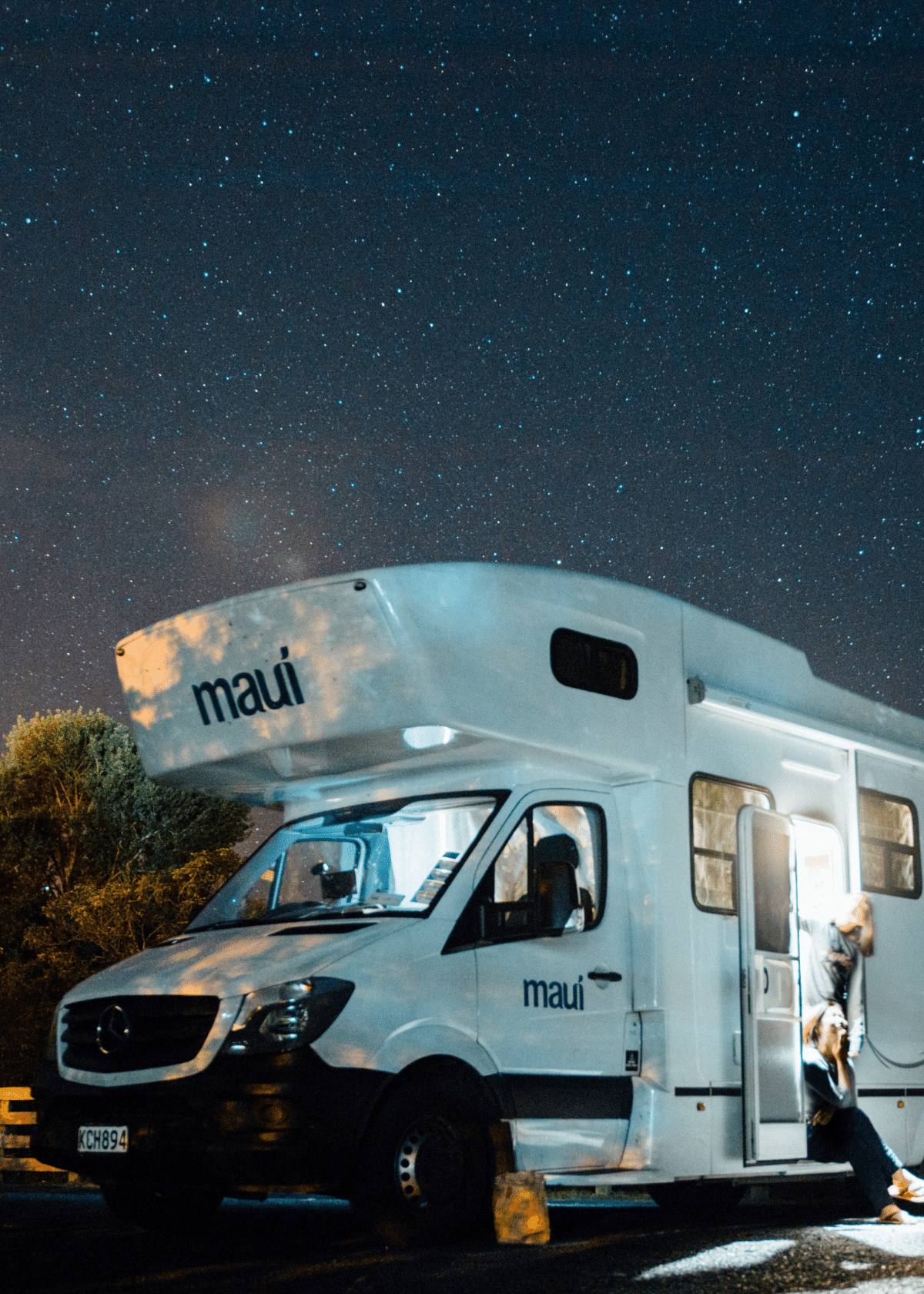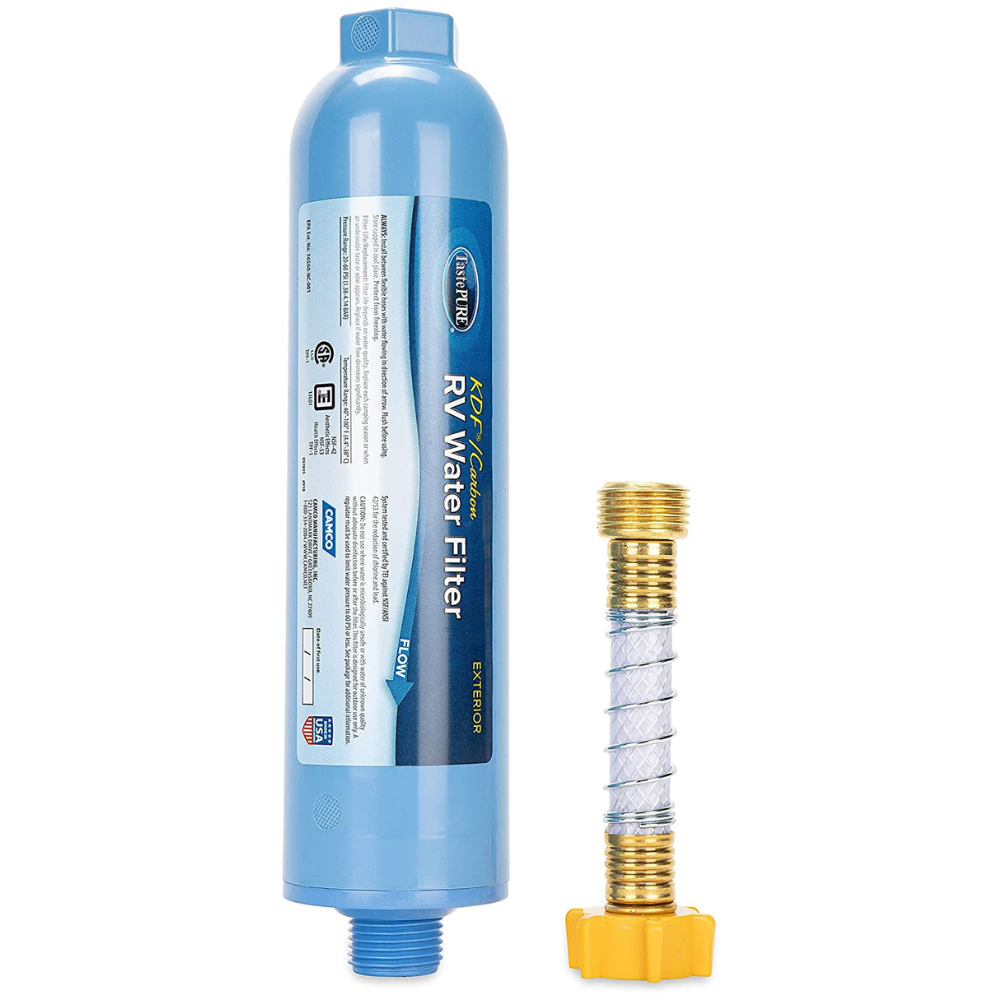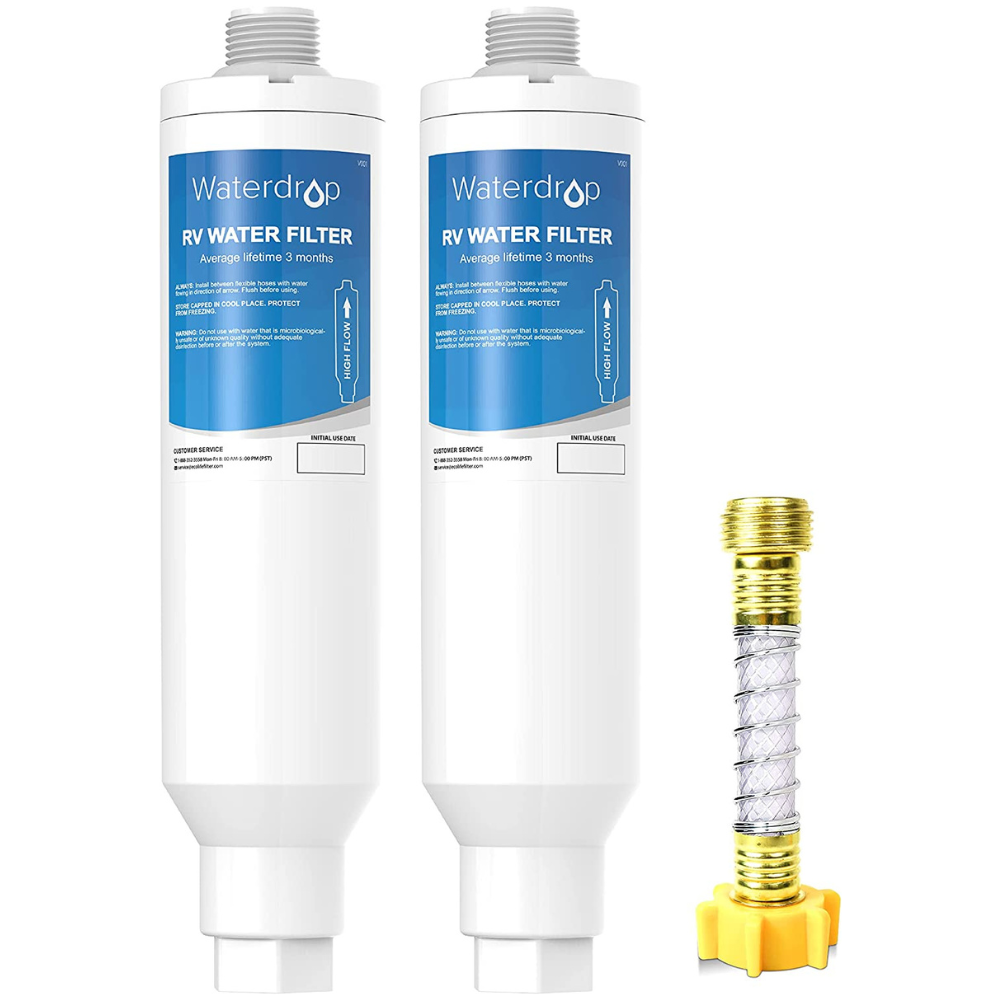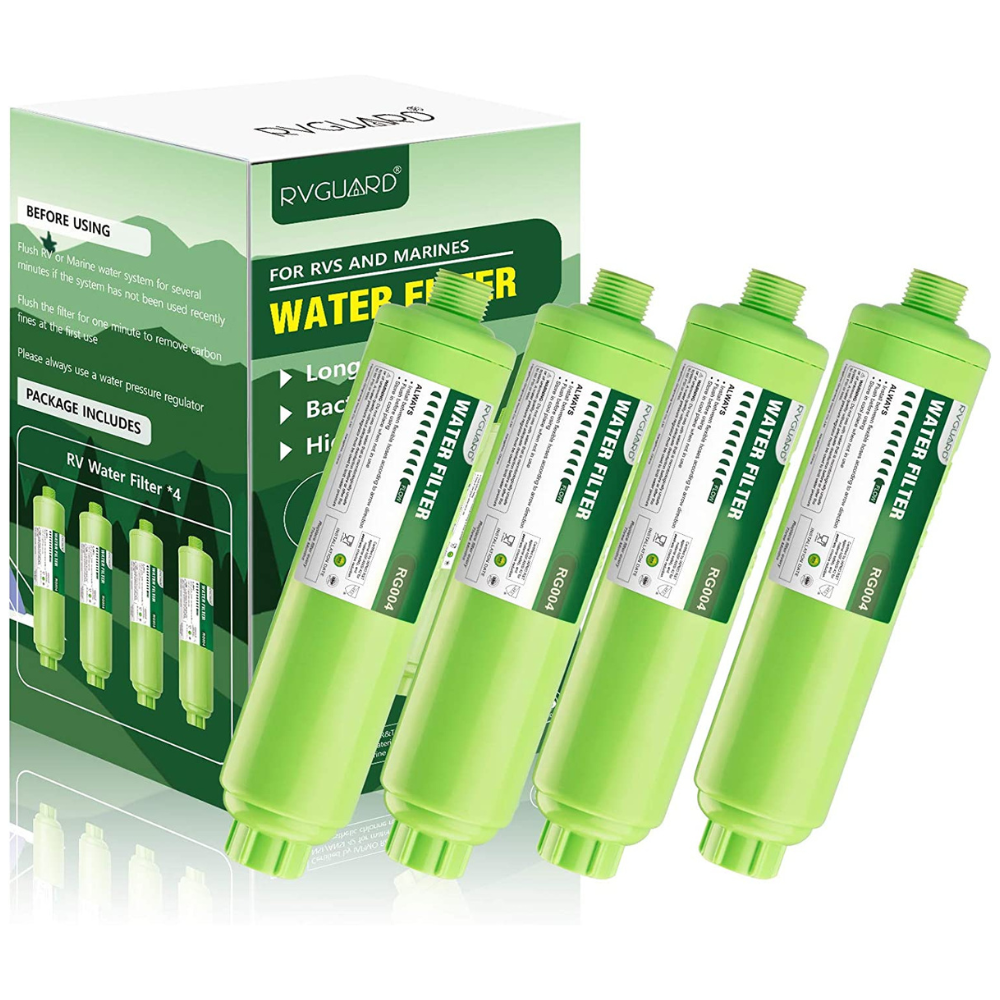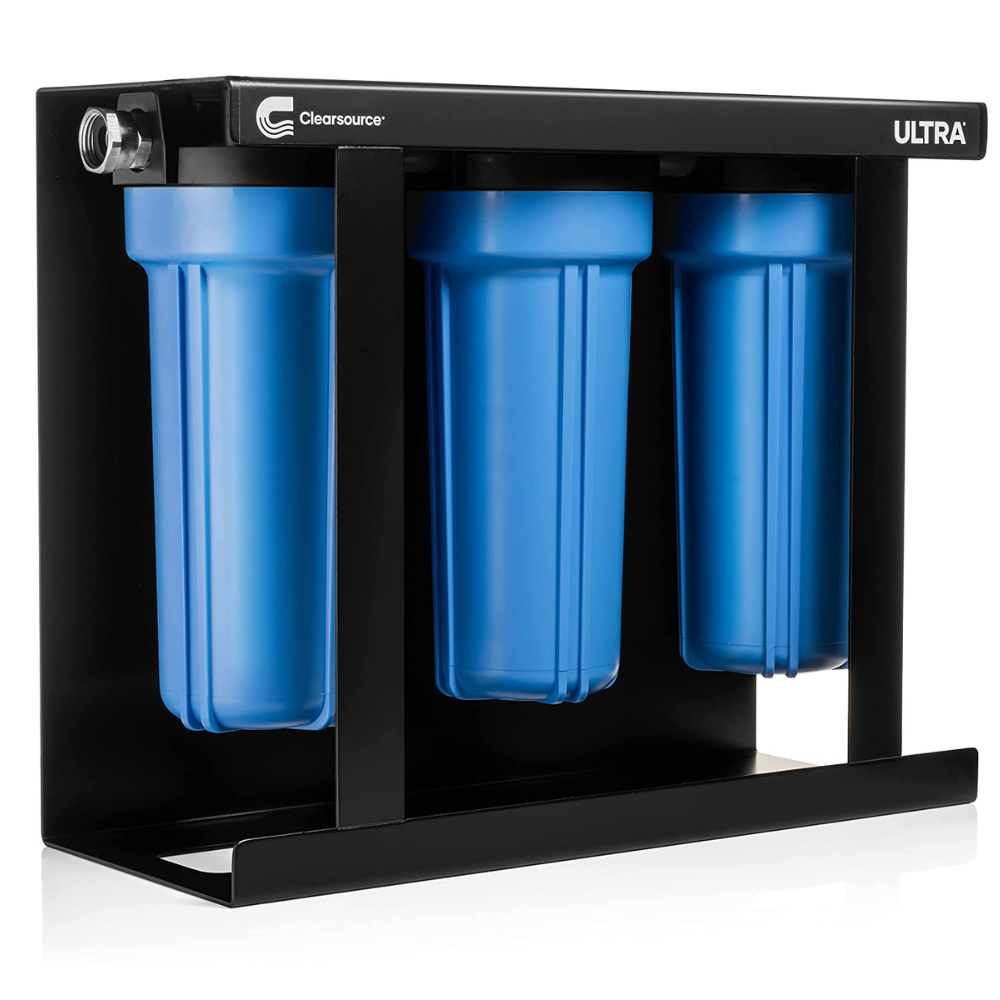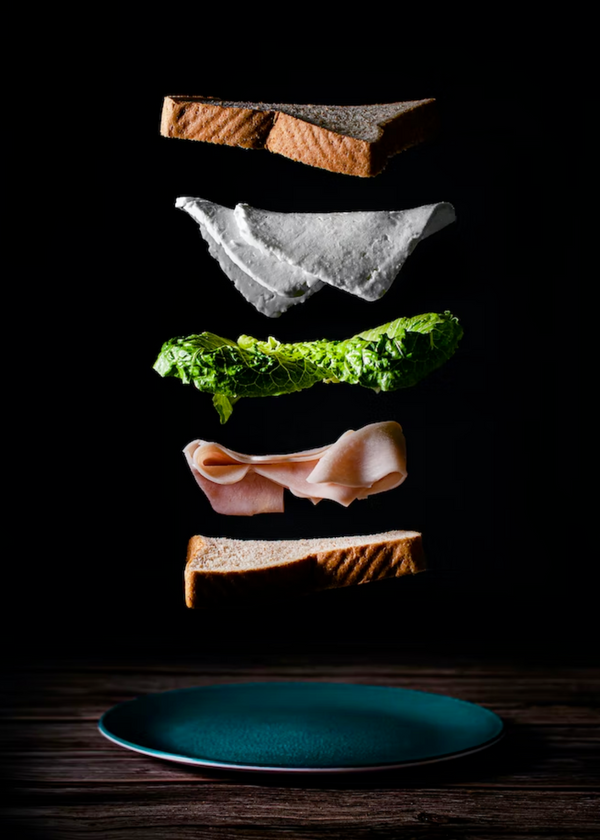Are you looking for the best RV water filter?
You’ve come to the right place! We’ve got all the information you need to make an informed purchase.
Not all filters are created equal – that’s why we’ve done all the hard work for you. We’ve compared and contrasted all the top-rated filters on the market so you can find the perfect one for your needs.
Scroll down to see our top picks for the best RV water filter!
How We Choose The Best For You
If you're like most people, you don't have the time to read through all the Amazon product reviews to find the best RV water filter.
Even if you could read through all of them, it's hard to know which ones are trustworthy and unbiased.
We've done the hard work for you. After reading through thousands of reviews, we've found the best RV in line water filter for your needs. Plus, we've included an FAQ to help answer some of your most pressing questions!
Why We Mention It
This filter is easy to attach to any hose, and the added short hose piece fits nicely into the fresh water tank opening.
Plus, it provides great tasting, clean water - you'll notice the difference immediately! And because it lasts a long time or through many refills, it's a great value for your money.
Some Facts You Should Know
This top-of-the-line water filter uses GAC (Granular Activated Carbon) to reduce contaminants, while the KDF treatment prevents undesirable growth when the filter is not in use.
Plus, it conforms to all federal and state-level low-lead laws, so you can rest assured that your water is safe to drink.
Why We Mention It
This great filter is easy to install and works great, making it the perfect choice for anyone who wants clean, clear water without any hassle.
The Waterdrop RV Water Filter is ideal for Rust and Sediment removal, making it the perfect choice for anyone who wants to make sure their water is as pure as possible. With its simple design and easy-to-use operation, the Waterdrop RV Water Filter is the perfect solution for anyone who wants clean, fresh water without any hassle.
Some Facts You Should Know
This highly efficient multi-stage filtration system uses Kinetic Degradation Fluxion (KDF) and Advanced Granular Activated Carbon (GAC) technology to remove impurities from your water, providing you with clean, fresh-tasting water.
The Waterdrop inline water filter is also constructed with food-grade materials, and it is certified by NSF 42 for long-lasting durability.
Why We Mention It
Looking for an inline RV water filter that provides great value for money? Look no further than the RVGUARD Inline RV Water Filter.
This 4-pack is the best deal on Amazon, and includes a thank you card and sticker card with peel off months. The company takes pride in their product and wants to make sure their customers are happy with their purchase.
Some Facts You Should Know
This budget water filter has a max working pressure of 60 psi and a capacity of up to 15000 gallons, making it perfect for even the most demanding RVs.
Additionally, its operating temperature range of 34F-100F means that it can handle any climate. Plus, with a microns diameter filter of 20, you can be confident that your water will be clean and free of impurities.
Why We Mention It
The Clearsource Premium RV Water Filter System is built tough to withstand any camping situation. With a durable and solid construction, this filter system can provide you with clean and safe water in any campground. The quality of the Clearsource filter is superior, and you can tell just by holding it. The engineering is top-notch, making it a great choice for anyone looking for a reliable water filter system.
Some Facts You Should Know
This 5-micron filter removes or reduces rust and sediment, while the 0.5-micron coconut shell carbon block filter improves taste and removes or reduces chlorine, volatile organic compounds, and other contaminants. But that's not all - the third stage VirusGuard filter removes or reduces bacteria like e. coli, cysts like Giardia, and viruses. That's right - viruses! No other RV water filter on the market provides anything close to that level of protection.
RV Water Filter FAQs
RV water filters are a necessary part of keeping your RV in good condition, but they can be confusing to shop for and install.
A lot of people don't know where to start when it comes to shopping for an RV water filter. There are so many different types and brands available that it can be hard to figure out which one is right for you.
We've compiled a list of the most frequently asked questions about RV water filters. This will help you understand the different types of filters available and how to choose the right one for your needs.
Do I need a water filter for my RV?
It depends on the quality of your RV's water supply. If you're travelling in a region with pristine, glacial-fed lakes and streams, you may not need a filter. But if you're travelling in an area with hard water, high mineral content, or chlorine levels that could bother your family's skin or eyes, then a good RV water filter is a wise investment.
There are many types of RV water filters on the market, but one of the best is a carbon filter. This type of filter removes sediment, chlorine, and other unwanted chemicals from your drinking water. So if you're questioning whether or not you need a water filter for your RV – the answer is most likely yes! And a carbon filter is a great option.
How long does a RV water filter last?
Most RV water filters will last around 6 months, but it depends on the type of filter and how often the RV is used. The best RV water filters are those that use a carbon filter. These filters remove sediment, chlorine, and other chemicals from the water. They also help to improve the taste and smell of the water.
RV water filtration systems are an important part of keeping your RV running smoothly. Not only do they help to improve the quality of the water, but they also help to protect your RV's plumbing system from damage. A solid carbon block filter is a great choice for these systems because they remove harmful chemicals while leaving beneficial minerals in the water.
How often do you change an RV water filter?
It depends on the filter. Some filters need to be changed every 6 months, others every 12 months. It's important to read the filter's guidelines to see how often it should be replaced.
A sediment filter should be changed more often, like every 3-6 months. This is because it catches more particles and therefore becomes dirtier faster than a carbon filter. Carbon filters usually only need to be replaced every 6-12 months, but it really depends on how much water you're using and what kind of contaminants are in your RV water supply.
How to change an RV water filter?
If you have an RV, it's important to know how to change the water filter. Here's what you need to do:
1. Locate the sediment filter. This is usually a small cylindrical filter located near the water pump or inline with the fresh water hose.
2. Unscrew the filter and remove it from its housing. Inspect the filter for any buildup of sediment or other debris. If the filter is clean, you can reinsert it and screw it back into place.
3. If the filter is dirty, replace it with a new one following the manufacturer's directions. Be sure to use the appropriate type of replacement filter for your system.
4. Once you've replaced the filter, flush the system by running fresh water through all of the faucets until the water runs clear.
5. It's also a good idea to sanitize the RV's water system after changing the filter. This can be done by adding a chlorinating tablet to the fresh water tank or using a portable chlorine generator.
Changing an RV water filter is a simple process that should be done every 3-6 months, or more often if you notice a decrease in water pressure or an increase in sediment in the water. By following these steps, you can keep your RV's water clean and safe to drink.
How do granular activated carbon impact water flow in an RV?
An RV water filtration system typically uses a two-stage process: sediment filters remove dirt and debris, followed by a carbon filter to remove chemicals, tastes, and odors. The second stage - the carbon filter - is where granular activated carbon (GAC) comes into play.
Carbon filters work by trapping tiny particles of pollutants within the GAC material. As water flows through the filter, these particles are trapped and removed from the water stream. The more GAC you have in your filter cartridge, the longer it will take for water to flow through the cartridge - and the slower your overall water flow rate will be.
If you're having problems with low water flow in your RV, it's possible that your carbon filter is the culprit. To improve water flow, try using a GAC-based filter with a lower activated carbon content. This will allow water to flow more freely through the cartridge without sacrificing filtration quality.
How do RV water filters filter water and remove germs?
There are a few different ways that RV water filters can remove germs from water. The most common method is using activated carbon, which is a porous material that adsorbs contaminants from water as it passes through the filter.
Activated carbon is very effective at removing a wide range of contaminants, including bacteria and viruses. Another common way to remove bacteria and viruses from is by using ultraviolet light.
UV light disinfects the water by Destroys the genetic material of bacteria and viruses, making them unable to reproduce or infect cells. There are also reverse osmosis filters that use a semi-permeable membrane to remove contaminants from water. A reverse osmosis filter is very effective at removing small particles, including bacteria and viruses.
Do I need a special RV water filter?
Yes, you will need a special RV water filter. A regular home water filter will not be able to remove all of the contaminants that can be found in an RV's water supply.
Does an RV water filter reduce water pressure?
It depends on the type of RV water filter you are using. There are two types of filters - inline and whole-house. Inline filters are designed to be attached to the end of a faucet, while whole-house interior RV water filters are installed between the water source and the plumbing system.
Inline filters typically reduce water pressure by about 10%. However, if you are using a whole-house filter, it is likely to reduce water pressure by more than that since it is installed between the water source and the plumbing system.
If you are concerned about water pressure, it is best to consult with a professional before installing an RV water filter.
How do I keep my RV water filter from freezing?
The best way to keep your RV water filter from freezing is by using a heated hose.
Heated hoses are specifically designed to prevent the water in your RV's plumbing system from freezing. They work by circulating warm water through the hose, which prevents the water from solidifying and blocking the flow of water.
If you're not using a heated hose, you can keep your RV's water filter from freezing by wrapping it in insulation. You can use fiberglass insulation, foam insulation, or even newspapers to keep the heat in. Just be sure to wrap it tightly so that no air can get through.
Another way to prevent your RV water filter from freezing is by using a heat tape. Heat tapes are electric heating coils that can be wrapped around your plumbing to keep the water flowing.
If you're not using a heat tape, you can keep your RV's water filter from freezing by circulating the antifreeze in your plumbing system. Simply run a small amount of antifreeze through your faucets and toilets to keep the water moving and prevent it from freezing.
So What Is The Best RV Water Filter For You?
So, whether you’re a first-time RVer or an experienced camper looking for an upgrade, we hope our list of the best RV water filters has helped narrow down your search.
And don’t forget to tap the button below to check out the price of your favorite filter – happy camping!
Related Pages:

